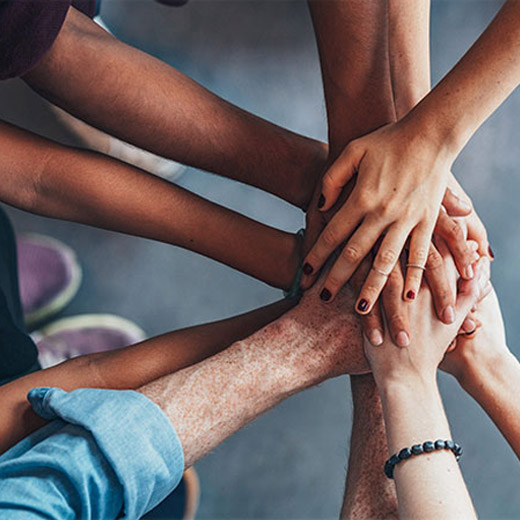
Recovering from addiction can be a lonely time. You may feel that others do not understand what you are going through and that you have nobody to talk to. Fellowship and support groups provide a safe space with others in the same situation as you and offer a sense of community and support.
There are various types of support groups and meetings that can be incorporated into your addiction treatment program, and there are many positive benefits to be gained from attending them.
What Is a Support Group?
Support groups bring people who have been through or are going through a similar experience together. They provide a safe, welcoming environment to share personal experiences, coping strategies, and information about treatments and experiences. You can also access support groups for additional emotional support during treatment in addiction recovery.
Support Group Vs Fellowship Group
Support groups and fellowship groups may sound similar, but they have subtle differences. Fellowship groups such as Alcoholics Anonymous and Narcotics Anonymous are based on the 12-step model. While other support groups are not necessarily fellowships, fellowships are still support groups.
Finding Support During Lockdown
The Covid-19 pandemic has had a knock-on effect for many groups. As many meetings could not be held in person, they have shifted to online forums that still provide peer support for those in need.
What Is the Mission of Support Groups?
The purpose of support groups is to provide a safe space for people with substance use disorders. This can be through allowing them to talk about their experiences or simply listening to others who have been in the same position. They encourage members to stay on track, remain abstinent on their recovery journey, and find healthy coping mechanisms to help overcome obstacles.
Types of Support Groups
There are several types of support groups on offer for those with substance use disorders:
- Mutual support groups – These are often peer-led groups that allow people to lean on one another for support. Although facilitators receive training, they do not provide advice as professionals.
- 12-step groups – These support groups include Alcoholics Anonymous (AA), Narcotics Anonymous (NA), and Cocaine Anonymous (CA). They walk participants through the 12-steps to recovery as created by Alcoholics Anonymous and support them throughout the process.
- Family support groups – The family of those struggling with a substance use disorder can be majorly affected by their actions. Family support groups provide a space for families to discuss their problems.

Do You Need Help?
We offer initial assessment and advice via phone or contact form.
What Are the Benefits of Support Groups?
Attending support groups has many benefits for those in addiction recovery. Support groups can help you to:
- Maintain hope
- Share experiences
- Learn coping mechanisms
- Provide emotional support
- Maintain momentum in recovery
- Gain inspiration
- Gain strength
- Take charge of their lives
- Create sober friendships
Do I Have to Be Religious to Attend Support Groups?

In short, no. While many support groups, such as 12-step programs, have spiritual overtones that influence how they are run, you do not need to be religious to join.
Many support groups are secular in nature, such as LifeRing and Rational Recovery. Alternatively, if you prefer religious support groups, there are options such as Celebrate Recovery and Jewish Alcoholics, Chemically Dependent Persons, And Significant Others (JACS).
What to Expect at a Fellowship Meeting
Every group is different, but there are a few things that you can generally expect from each one:
- A clear structure – many good support groups have a clear structure for their meetings. You can generally expect part of this to be a welcome message and introductions and a group discussion that may or may not be themed.
- Guidelines – your support group should have clear policies, such as who can and cannot attend and how much time each person can spend sharing to prevent anyone from monopolizing the group’s time.
- A trained facilitator – facilitators help set clear boundaries and keep discussions on track. They will also handle any emergencies that may arise during a session.
How Are Group Meetings Included in (United Recovery CA)’s Aftercare Plan?
Substance use disorders do not vanish after detox or a stay in rehab. Many people have to work hard to stay in recovery, and support groups provide an excellent starting point.
At United Recovery CA, we believe that support groups are vital to maintaining sobriety and providing a strong community for people in addiction recovery. We include support groups as part of our alumni outpatient treatment program to help our clients continue their recovery journey.
Our custom aftercare plans will help you find meetings local to you and will support each step on your road to recovery. United Recovery CA provides 12-step groups to foster long-term recovery and a dedicated support worker who can help create a timetable for your first few weeks after treatment.
You will work together to create goals as you move forward, and your support worker will be available to offer advice about choosing a sponsor and navigating the options for different support groups.

Meet Your Recovery Team
The recovery journey is unique and personal to everyone. Our team are highly trained professionals who set United Recovery CA apart due to their expertize, and each staff member brings their unique knowledge and experience to addiction treatment. They provide a safe environment to provide the ideal start of your addiction recovery.





